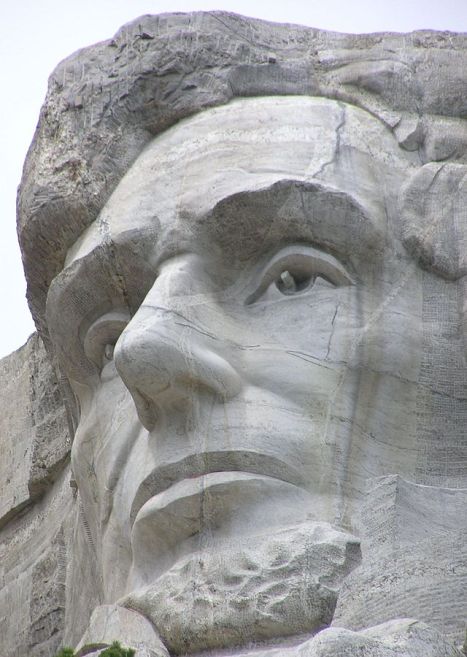By the early summer of 1862 he was convinced that, by divine providence, the Union was safe, and it was his duty to change the object of the war: to wash away the sin of the Constitution and the Founding Fathers, and make all the people of the United States, black as well as white, free. Providence had guided him to this point; now providence would guide him further and suggest the precise time when the announcement should be made, so as to bring victory nearer.
On September 22, the Emancipation Proclamation, the most revolutionary document in United States history since the Declaration of Independence, was made public, effective from January I, 1863. The ultimate impact of this move on the progress of the war was entirely favorable - as Lincoln, listening to the heedings of providence, knew it would be.
The Emancipation Proclamation satisfied his own mind that the war was just.
Grant saw the Civil War as a punishment on the entire country by God - 'Nations, like individuals, are punished for their transgressions. We got our punishment in the war.'
Lincoln entered his second term of office in a forthright but still somber mood, in which the religious overtones in his voice had grown stronger. They echo through his short Second Inaugural, a meditation on the mysterious way in which both sides in the struggle invoked their God, and God withheld his ultimate decision in favor of either:
'Both read the same Bible, and pray to the same God; and each invokes His aid against the other. It may seem strange that any men should dare to ask a just God's assistance in wringing their bread from the sweat of other men's faces; but let us judge not that we be not judged. The prayers of both could not be answered; that of neither has been answered fully. The Almighty has His own purposes: 'Woe into the world because of offenses! For it needs be that offenses come, but woe unto that man by whom the offenses cometh!' ... Fondly do we hope - fervently do we pray - that this mighty scourge of war may speedily pass away. Yet if God wills that it continue, until all the wealth piled by the bond-man's two-hundred-and-fifty years of unrequited toil shall be sunk, and until every drop of blood drawn by the lash shall be paid with another drawn by the sword, as was said three thousand years ago, so still it must be said 'the judgements of the Lord are true and righteous altogether!
So Lincoln asked the nation to continue the struggle to the end, 'With malice to none, with charity to all, with firmness in the right, as God gives us to see the right.'
The Second Inaugural began the myth of Lincoln in the hearts of Americans. Those who actually glimpsed him were fascinated by his extraordinary appearance, so incarnate of the nation's spirit in some mysterious way. Hawthorne wrote (1862):
'The whole physiognomy ... is redeemed, illuminated, softened and brightened by a kindly though serious look out of his eyes ... honest at heart, and thoroughly so.'

